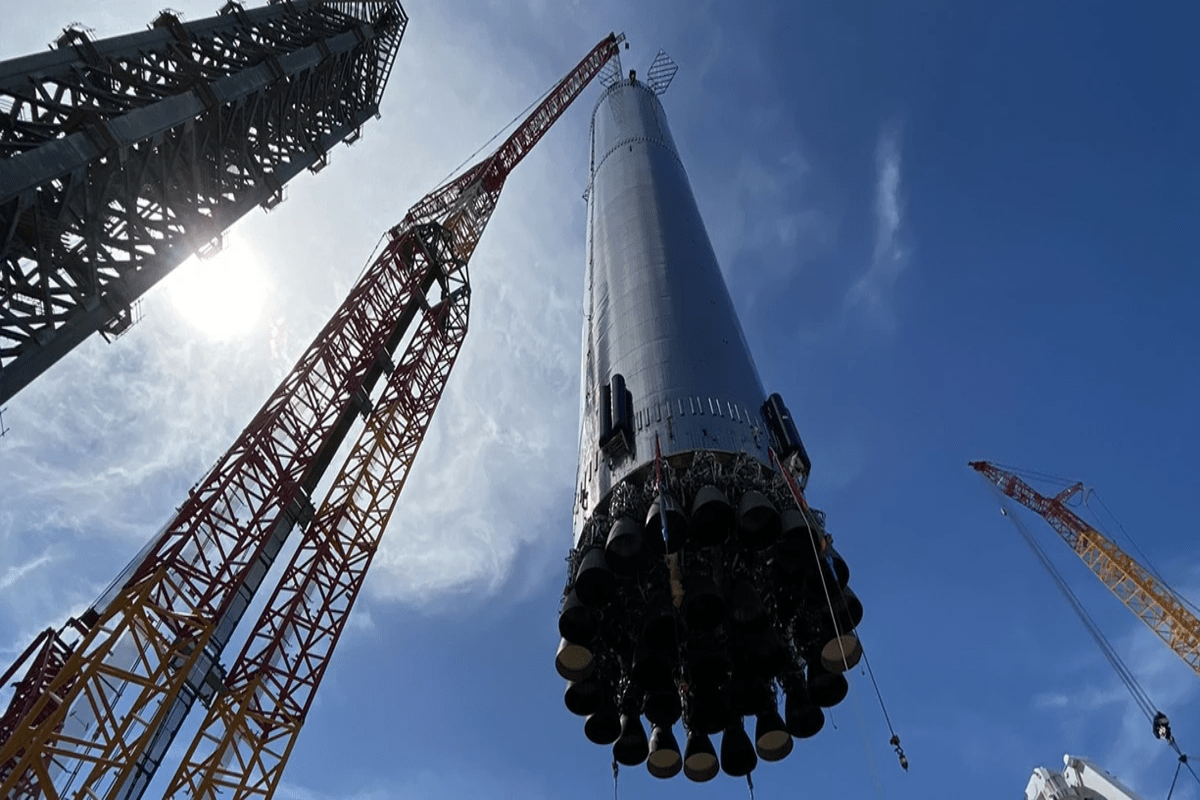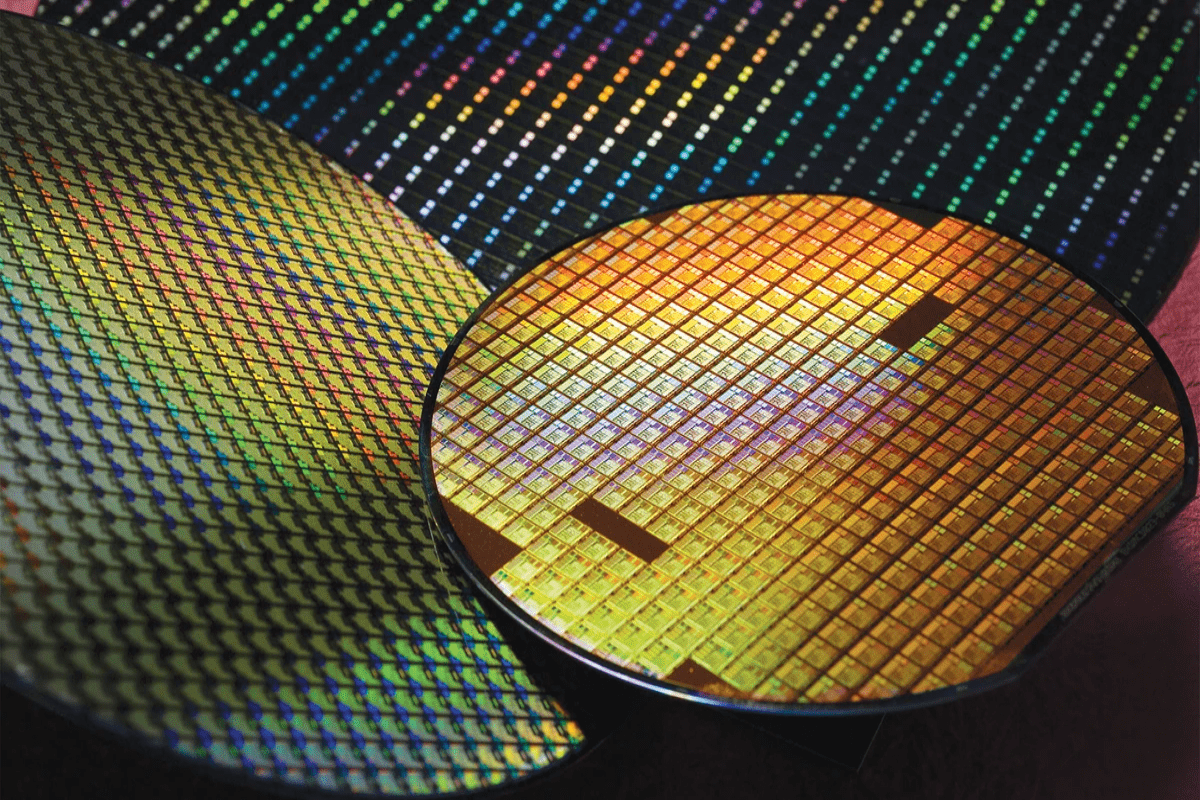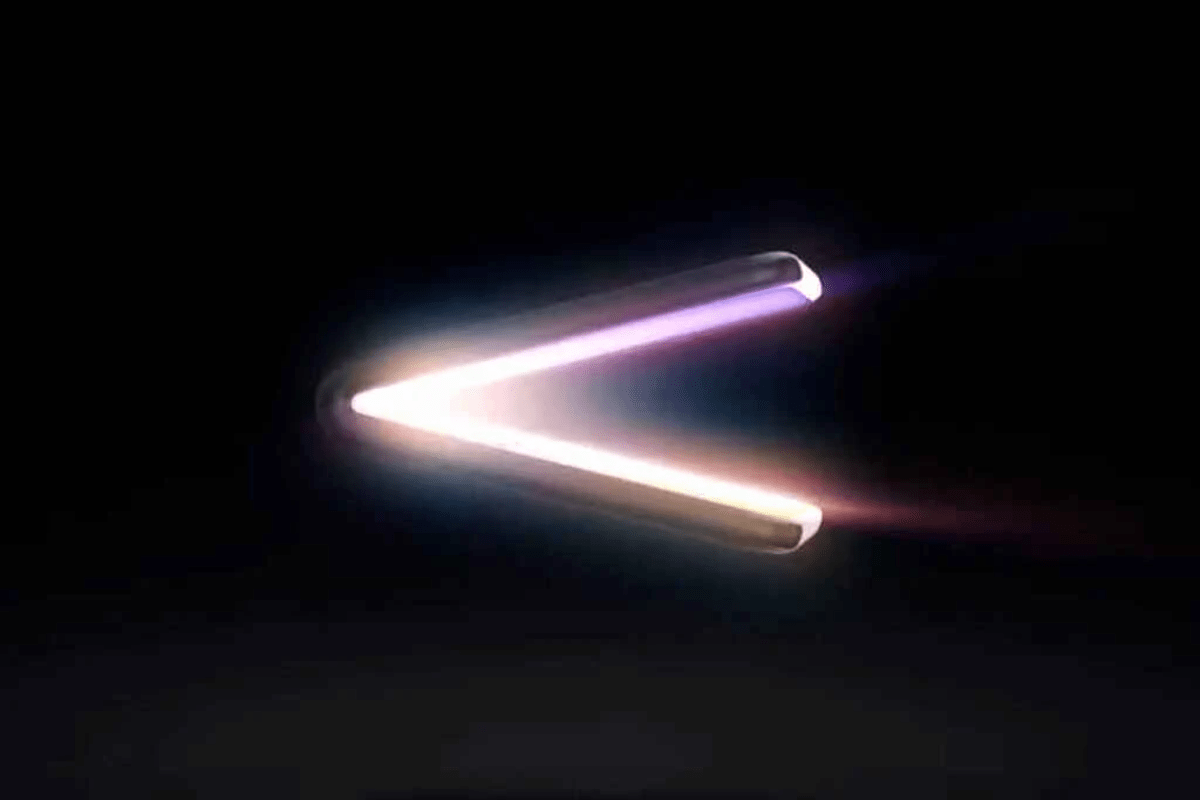
DOV
- STRATEGIES
- DOV GLOBAL
- …
- STRATEGIES
- DOV GLOBAL
DOV
- STRATEGIES
- DOV GLOBAL
- …
- STRATEGIES
- DOV GLOBAL
- Tech Sector

SPACE TECH
SpaceX fully installs Super Heavy booster’s ‘aerocovers’
Teslarati
For the first time, SpaceX has more or less installed a full set of ‘aerocovers’ on a Super Heavy booster prototype.
Designed to protect the booster from both itself and Earth’s atmosphere during ground testing, liftoff, ascent, and reentry, Super Heavy’s the structures amount to thin, steel shells mounted on metal box frames. The most obvious aerocovers slot over the top of six racks of equipment installed on the outside of Super Heavy’s aft end, giving the booster a sort of utility belt of hydraulic systems, pressure vessels, avionics, and heat exchangers. Unsurprisingly, those racks are festooned with electronics, composites, and thousands of feet of wiring and thin plumbing – none of which are particularly suited to sit a few dozen feet from the fury of 29-33 Raptor engines or near the leading edge of a hypersonic reentry vehicle.

NANOTECH
Nanotechnology Initiatives in the Marine Industry
AZoNano
Nanotechnology has found applications in almost every industry today, making its mark with electronic devices, sensors, novel materials, compounds, and surface treatments.
Transportation as a whole has benefited from nanofilters, anti-glare coatings, carbon black for tyres, GMR sensors or magnetometers, fuel additives, dirt protection, electrocatalysts for hydrogen, and many more nanotechnology developments.
The marine industry – responsible for much of the world’s transportation of goods, materials, and people – has also embraced nanotechnology solutions for longstanding challenges as well as the most pressing contemporary concerns.

AR
The race to build AR glasses is heating up, and Samsung is surprisingly quiet
CNET
It's only January, but 2022 is already shaping up to be a big year for augmented and virtual reality. It was one of the most prevalent themes at CES, which featured AR and VR announcements from Sony, Microsoft and Qualcomm (among others). Apple is also rumored to finally make its anticipated move into the smart headset space this or next year.
Yet, one company has been unusually quiet on the AR and VR front in recent years: Samsung. The South Korean tech giant made a name for itself early on primarily through its line of Gear VR smartphone-based headsets, which launched in 2014. But companies like Meta, Microsoft and Snap have made bigger strides in the past couple of years.

CPU
Nvidia creates new CPU engineering unit in Intel's Israeli backyard
PC Gamer
Nvidia is intent on shoving its way into CPUs, one way or another. Today the supermassive GPU company announced it will create a CPU design and engineering group in Israel, and is intent on hiring hundreds of engineers for the job.
With its ongoing purchase of chip designer Arm, you could say Nvidia has a keen interest in CPU development, and even for a GPU company such as Nvidia, that's not particularly surprising. The CPU is a key component of Nvidia's datacentre aspirations, where general-purpose processing smarts are very much still required, even if the overall system requires GPU to do most of the computational heavy-lifting.
Though perhaps Nvidia hopes to compete with Intel and AMD for something: great engineers. It's a constant tussle for staff between these major chipmaking companies, and Intel has a large presence in Israel. Many of its cutting-edge engineering teams are based in the country, and I'm sure Nvidia would love to snap-up some top-notch talent from under its nose.

METAVERSE
Hyundai sends Boston Dynamics’ Spot robot into the metaverse
TechCrunch
One thing’s for certain: Hyundai has some grand ambitions for its robotics development. And thus far, the automaker has been willing to put its money where its mouth is, most notably in the form of its acquisition of Boston Dynamics, which valued the robotics pioneer at north of $1 billion.
Robotics are, predictably, taking center stage with the company’s CES presentation this week. Last month, Hyundai offered a sneak preview in the form of the Mobile Eccentric Droid, a four-wheel modular mobility platform. Today, the company outlined broader plans for the future with its new “metamobility” concept.
Hyundai will be revealing more information about its strategy, and we’ll be speaking to some executives to get a better idea of what it might look like in practice. For now, the broad idea was presented under the banner of “Expanding Human Reach,” which aims to find a role for mobility and robotics in a virtual reality metaverse. It’s hard to separate the buzzwords from the practical implications at this early stage, but a primary component seems to be the use of hardware to serve as a kind of real-world proxy for VR interactions.

FOLDABLE PHONES
Smartphone market: Foldable phones will turn a corner in 2022 as new models flood market
The Economic Times
India's smartphone market is set to be flooded with foldable phones in 2022 with all top brands such as Xiaomi, Apple, Samsung, Oppo and Vivo likely betting on such devices. The segment is likely to touch 300,000 unit sales in 2022 from 1,75,150 units in 2021, a whopping 600 plus percent on year jump, albeit on a smaller base, sector watchers said.
"In terms of sales volumes, the market is likely to cross 300,000 units in 2022, which will be close to 7% of the luxe segment of smartphones," said Faisal Kawoosa, founder of research firm, Techarc. Today, about 4.2% of the luxury segment is in the foldable category.
He added that in 2022, foldable smartphone revenues are expected to grow 60% on-year, or ₹3,200 crore, for the industry.
© Copyright 2025 | DOV | Privacy Policy | All Rights Reserved







